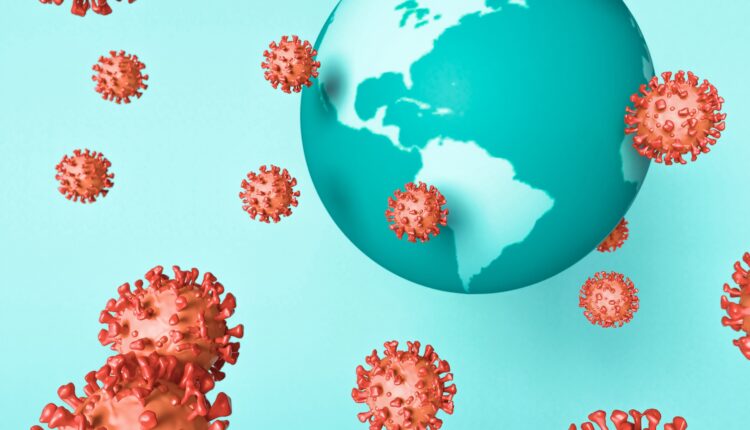The government awaits the decision on the COVID-19 endemic from the WHO
By: Satria Pandu Jati )*
The case of Covid-19 in Indonesia continues to show the direction of improvement, however, this does not mean that the pandemic will just disappear. In addition, the decision to change its status to endemic is in the hands of WHO. The public must continue to maintain health protocols and carry out booster vaccinations in line with the Covid-19 XBB subvariance.
Based on the effective reproduction rate (RT) of COVID-19 in Indonesia, it turns out that the number is below one, which is at 0.8. In fact, this achievement has occurred since mid-August 2022. According to Airlangga University Epidemiologist, Dr. Windhu Purnomo, it can be said that if the effective reproduction rate of a virus is below one, it means that the transmission rate is very small. The reason, he gave an example, if the effective reproduction number is 2, it means that one positive person will infect two other people and so on.
Not only based on effective reproduction, but if you look at other indicators, namely the Covid-19 positivity rate in Indonesia, which is approaching the 5 percent level, so it is often found that health care facilities are no longer burdened by Covid-19 patients, unlike in 2015. before when the virus was very booming. In line with this, the number of deaths due to Covid-19 is also decreasing.
Whereas on the other hand, according to Dr. Windhu, there are still many countries whose situation is worse than Indonesia. With high mobility, there is the potential for new mutations and variants of Covid-19. This shows how the government has been very successful in handling and controlling the pandemic, and on the one hand it is also trying to reopen the wheels of the economy in the country by starting to loosen mobility policies for the community.
Although various indicators have shown that Covid-19 cases in Indonesia continue to improve, this does not mean that the pandemic has completely ended. Revocation of the status of a pandemic is still in the hands of the World Health Organization (WHO).
Dr. Windhu also revealed that actually from the data mentioned above, Indonesia has started to enter the initial phase of the endemic. However, he is also still wary of explaining that even though he is in the early phase of an endemic, the goal is not endemic, but sporadic. The picture is sometimes there, sometimes lost.
According to the Airlangga University Epidemiologist, the best thing the government can do is not to precede the WHO’s decision to end the pandemic status, so that it continues to monitor how the WHO’s status progresses. In addition, he also again appealed to the entire community to continue to promote booster vaccinations even more massively, with a target of around 70 percent of the population being vaccinated until at least the end of the year to ensure the formation of herd immunity so that the endemic status will become clearer. achieved. For him, the third dose of booster vaccination should be pursued and spread to all regions in the country.
According to Windhu, WHO has the authority to revoke the Public Health Emergency of International Concern (PHEIC). After that, the status of the pandemic in Indonesia ended. Not only looking at the status of one country, but the WHO’s decision to continue to enforce the status of the Covid-19 pandemic is also how they see other countries which are apparently still not in a condition that is truly safe from threats. When all countries are safe, it is not impossible that the pandemic status will be revoked.
Previously, as Covid-19 infections and related deaths continued to decline, the World Health Organization (WHO) had warned that the possibility of the emergence of a more deadly and more contagious variant of the coronavirus remained and urged all to continue to increase vigilance. So, indeed, everyone must continue to increase their own vigilance and not be too hasty or become careless because they think that the pandemic is gone.
In this regard, WHO Director General, Tedros Adhanom Ghebreyesus revealed that the Omicron subvariant is more infectious than its predecessor, and the risk of a more infectious and more dangerous variant remains. He even reminded everyone that it is not impossible, Covid-19 cases will increase again in the coming months.
According to Tedros, although currently in some areas of the world there is a decline in cases and also a decrease in the death rate due to Covid-19, there is a risk that cold weather in the Northern Hemisphere could again increase the risk of hospitalization and death in the next few months. Indeed, previously the WHO itself had also revealed that humans must prepare in the coming years to be able to coexist with Covid-19.
So even though all indicators show improvement regarding Covid-19 in Indonesia and also indicate that the handling and control of the pandemic carried out by the Indonesian government has experienced great success, this does not mean that the pandemic will just disappear. However, the decision regarding the status of the virus is absolutely in the hands of WHO with their various assessments, so health protocols and vaccinations must be intensified by the whole community.
)* The author is a contributor to Persada institute
